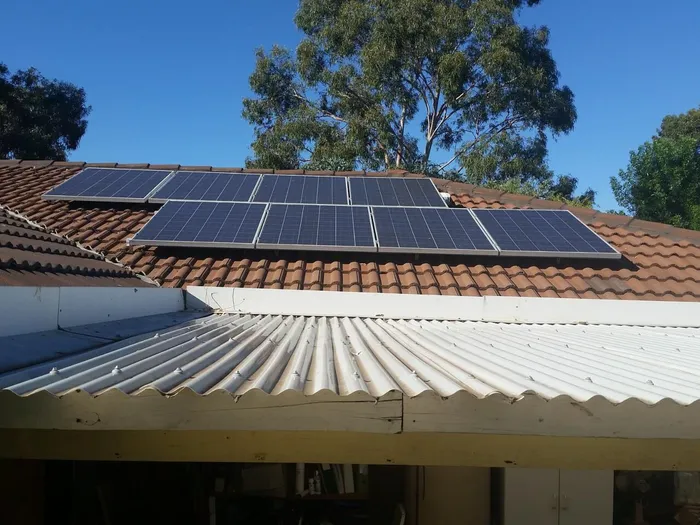KwaZulu-Natal municipalities to use AI and satellite data to track illegal solar PV installations

Kwazulu-Natal municipalities are set to leverage AI and satellite technology to identify homes with illegal solar photovoltaic systems.
Image: File
KwaZulu-Natal municipalities are set to use technology such as Artificial Intelligence (AI) and satellite data to locate homes that have illegal solar photovoltaic (PV) systems.
According to National Energy Regulator of South Africa (Nersa) regulations, Eskom direct customers who have Small-Scale Embedded Generation (SSEG) systems, including solar photovoltaic (PV) installation systems, must register the system with Eskom. Owners of these systems in areas with municipal electricity supply are required by NERSA to register these systems with their local municipality.
The eThekwini municipality has warned that, in the future, it will deploy AI, combined with other resources, as it clamps down on illegal installations. This comes as energy experts have warned that failure to file proper paperwork could lead to homes that have installed solar systems being fined or having their systems disconnected. At least three municipalities have warned residents in the province to ensure they have legally complied with regulations around solar panel installations.
Rein Snoeck Henkemans, CEO of Alumo Energy, in a recent statement said that Eskom and municipalities have begun using satellite technology to track unregistered rooftop solar systems, and thousands of households could be in violation without even knowing it. Even legally purchased and professionally installed solar setups are now at risk of being disconnected or fined if the correct paperwork isn’t in place, he said.
“The government is tightening the enforcement of regulations on rooftop solar after recently confirming that satellite technology will be used to identify unregistered SSEG systems as part of a national compliance sweep that could result in thousands of fines being issued across the country,” he said. “A solar Certificate of Compliance (CoC) is the only document that proves an installation meets South African National Standards. No CoC means no legal grid connection and, crucially, no insurance payout if lightning destroys a pricey battery bank,” he concluded.
eThekwini Municipality’s spokesperson, Gugu Sisilana, stated that compliance checks are planned for the future. “Currently, the eThekwini Electricity Directorate has not commenced compliance investigations, as customers who have installed unauthorised solar systems are still being given the opportunity to register their systems with the municipality.
“However, in the future, the municipality plans to utilise AI in conjunction with its Geographic Information System (GIS) to identify customers operating unauthorised solar photovoltaic systems,” she said. The City said all customers wanting to install solar photovoltaic systems need to complete the Embedded Generation application form and submit it to the municipality’s Electricity Directorate for approval. Upon approval, customers may then commence with the purchase and installation of equipment. Customers need to comply with various regulations such as the NRS 097, SANS 10142, and the South Africa Renewable Energy Grid Code.
For those who have already installed systems, the municipality said they need to complete the Embedded Generation application form requesting to regularise their solar PV installation. The municipality will then assess their application, and should everything be in order, they will regularise their system.
The City of UMhlathuze in Richards Bay said it will be recruiting qualified technicians to conduct compliance checks. "Homeowners are advised to visit the City's website under Small Scale Embedded Generator Registration (SSEG) for all requirements for registration and compliance.”
Msunduzi Municipality spokesperson, Ntobeko Mkhize, said, “Due to capacity constraints, Msunduzi has not yet commenced formal compliance inspections. However, during routine operations, if a customer is found to have installed a system without following the required processes, they are issued a notice to comply within a specified period.
“Failure to comply may result in further action being taken against the customer. It must be emphasised that non-compliant systems improperly connected to the grid pose serious safety risks to Msunduzi staff. In such cases, the customer’s electricity supply may be disconnected until compliance is achieved or the solar PV system is safely isolated from the grid.
"While it is the municipality’s intention to begin inspections of the growing number of solar PV installations—primarily to protect the safety of our operators—this initiative is currently constrained by limited human resources."
Msunduzi said regulations on the matter state that it is obliged by law to ensure that distribution grid power quality and safety standards are upheld to protect municipal staff working on the municipal electrical network, to protect the public in general, and to protect municipal infrastructure.
It further explained that the potential revenue impact of accelerating SSEG installations needs to be managed. This required changes to current tariff structures, particularly residential tariffs.
Related Topics: